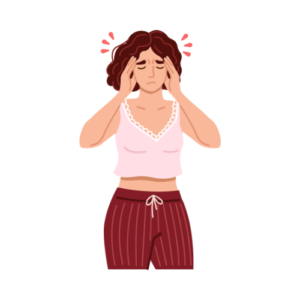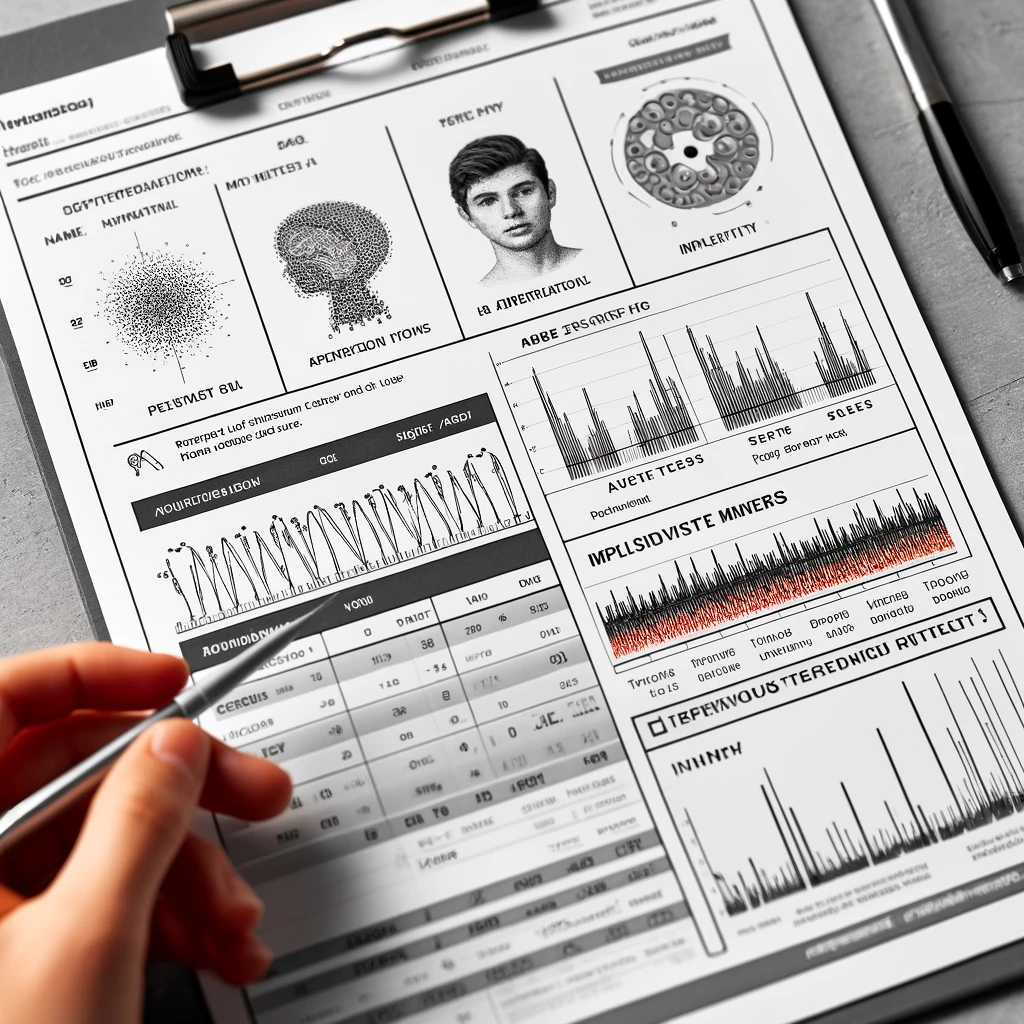ADHD Women in Perimenopause: Special Risks of Depression
ADHD Women in Perimenopause: Special Risks of Depression

What is Perimenopause?
ADHD and perimenopause don't mix. Let's learn why.
Perimenopause begins as early as 35 and ends after your last period, usually around 52. It is the transitional period before menopause characterized by hormonal fluctuations. ADHD women often see wild fluctuations in emotion, attention, and physical symptoms during this time.
What are the Emotional Impacts of Perimenopause for ADHD Women?
- Increased depression
- Overwhelm
- Frustration
- Sadness
- Irritability
- Anxiety
- Mood swings
- Memory problems
Perimenopause can cause significant emotional distress due to hormonal changes. One reason ADHD women are at particular risk is because of emotional regulation issues. These mood swings can be challenging to manage.
What is Happening with Your Hormones During Perimenopause?
- Estrogen receptors are located throughout regions of the brain that regulate mood, sleep, and cognition.
- Estrogen increases the amount of both serotonin and noradrenaline, favorably influencing mood.
- Progesterone and its metabolite, allopregnanolone, are involved in neuroprotective mechanisms, cognitive function, and mood.
- Decreased levels of allopregnanolone have been associated with depression in women.
- Some women may have an unfavorable response to the fluctuating levels of hormones that predispose them to depressive symptoms.
Learn more about hormones and ADHD.
Learn about pregnancy and ADHD.

Key Points to Know About Perimenopausal Depression if You Are an ADHD Woman
Going through perimenopause can be tough, and it might affect your mood in ways that are a bit different from what you might expect. Instead of just feeling sad, you might find yourself feeling really angry or hostile, having trouble sleeping, or feeling extra tired.
If you've had depression before, particularly major depressive disorder (MDD), it's more likely you could feel depressed during perimenopause. Also, if you've experienced mood changes related to your hormones before, like with premenstrual syndrome (PMS) or premenstrual dysphoric disorder (PMDD), you might notice some challenges too. This could be because of how your body reacts to hormone changes, which some people are more sensitive to because of their genes.
It's important to check in on how you're feeling during perimenopause. This is especially true if you've had depression or mood issues like PMS or PMDD before. For women with ADHD or autism, there's a higher chance of experiencing PMS or PMDD, making it even more important to keep an eye on your mood during this time.
Perimenopause comes with a mix of symptoms like hot flashes, forgetting things, feeling bloated, and maybe not feeling as interested in sex. This happens because the levels of estrogen and progesterone in your body are changing.
What are Some Physical Symptoms of Perimenopause?
Symptoms include hair loss, bloating, hot flashes, heavy bleeding, mood swings, etc. I've heard it referred to as reverse puberty, which I found helpful and accurate.
What is Going On in Your Brain When You Go Through Perimenopause?
For women with ADHD, it’s essential to know that estrogen affects dopamine. Dopamine is a brain chemical that helps you feel motivated and focused. So, when estrogen goes up and down, it can make ADHD symptoms like staying organized or staying focused even harder.
This rollercoaster of hormones might also be one reason why some women find out they have ADHD later in life. Changes during perimenopause could even make ADHD symptoms show up for the first time or feel stronger.
Here are Some Simple Tips to Help Manage Perimenopause Symptoms:
- Keep Cool: Dress in layers or use a fan for those hot flashes.
- Stay Organized: Use planners, apps, or alarms to help keep track of things and manage forgetfulness.
- Exercise Regularly: Physical activity can boost your mood and help with memory.
- Eat Well: A balanced diet can reduce bloating and improve your energy.
- Sleep Better: Try to have a regular sleep schedule to combat tiredness and improve focus.
- Talk About It: Sharing your experiences with friends, a support group, or a therapist can make a big difference.
Remember, it’s okay to ask for help, whether it’s from family, friends, or professionals. You’re not alone in this!
What Societal Factors Contribute to Anxiety and Depression During Perimenopause?
The societal pressure on women, increased responsibilities, and lack of understanding or support often exacerbate what ADHD women go through during these years.
You may not understand what is happening, and many healthcare providers won't either! This can cause frustration and a sense of isolation, exacerbating issues you already face as a neurodivergent woman.
There is a lack of knowledge about women's issues, and there is secrecy in society around discussing aging and menopause. Women feel ashamed and embarrassed.
What is the Treatment for Depression in Perimenopause for ADHD Women?
Navigating perimenopause as an ADHD woman can be smoother with a holistic approach that acknowledges both the physical and emotional changes you're going through. Here are some strategies to help manage symptoms and enhance your well-being during this time:
- Track Your Cycles: Keeping an eye on both your menstrual and mood cycles can provide valuable insights into your body’s patterns, helping you anticipate and manage symptoms more effectively.
- Lean on Your Community: Reach out to other women who get what you’re going through. Sharing experiences and advice can provide comfort and practical strategies for coping.
- Prioritize Your Well-being: Make sleep and self-care top priorities. Good rest is crucial for managing mood swings and fatigue, and taking time for yourself can significantly impact your overall health.
- Delegate and Ask for Help: You don’t have to do everything yourself. Asking for help and delegating responsibilities can relieve stress and give you space to focus on your health.
- Make Your Environment Work for You: On days you’re not feeling your best, adjust your surroundings to make life easier. This could mean organizing your space to be more accessible or making it cozier to comfort you.
- Advocate for Yourself: Finding healthcare providers who are knowledgeable about perimenopause and ADHD is critical. Don’t hesitate to speak up about your needs and seek out specialists who understand and can offer the right support.
- Embrace Self-Compassion: Be kind to yourself. Recognizing that your body and mind are going through significant changes is crucial. Practicing self-compassion can help reduce stress and promote a positive mindset.
- Consider Medical Options: Hormone replacement therapy (HRT), adjusting your ADHD medication, or exploring options like SSRIs or SNRIs, can be effective for managing symptoms. Discuss these possibilities with your healthcare provider to tailor a right plan for you.
Marino, J. M. (2022). Depressive symptoms in perimenopause. Women's Healthcare, October 2022. Link to Full Text







